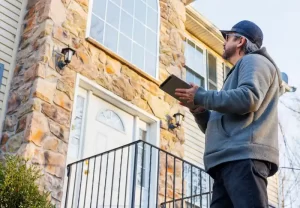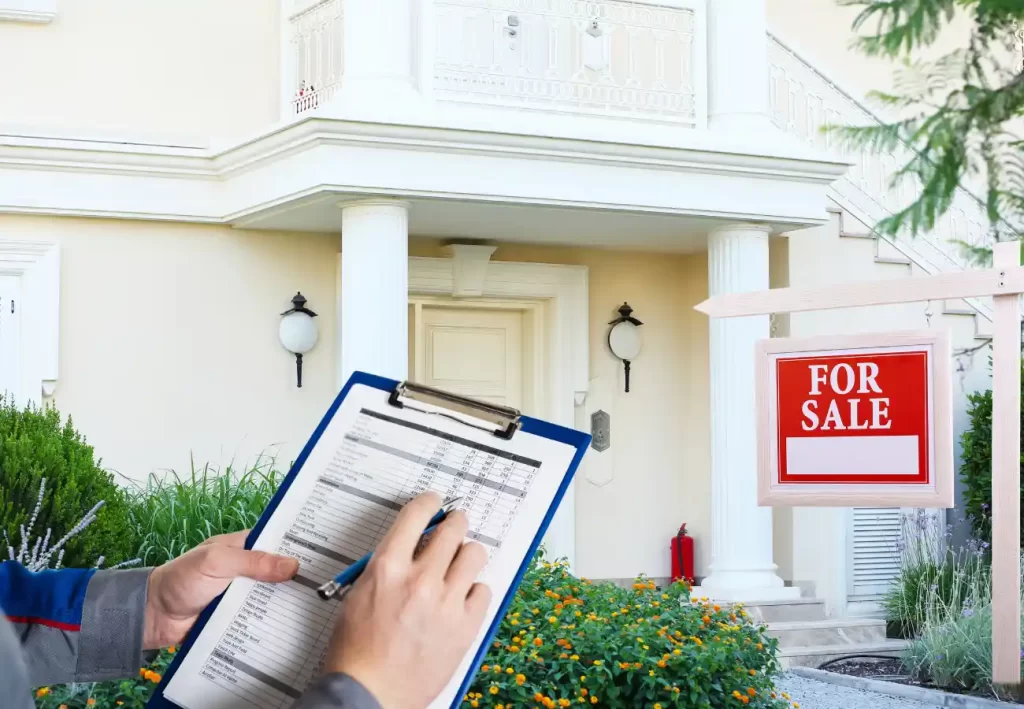Introduction
Purchasing a property is one of the most significant investments you will make in your lifetime. A pre-purchase building inspection plays a crucial role in the property buying process, providing an in-depth evaluation of the property’s condition. This essential step helps identify any hidden defects or potential issues that could impact the property’s value or safety.
A pre-purchase building inspection involves:
- Detailed assessment: Conducted by a qualified professional to ensure no aspect of the property is overlooked.
- Uncovering hidden defects: Identifying issues not immediately visible to the untrained eye.
- Informed decision-making: Empowering buyers with the knowledge needed to make confident property decisions.
In this guide, you will learn everything you need to know about pre-purchase building inspections and how they can ensure a stress-free purchase.
To further understand the importance of inspections, it’s worth exploring industrial inspections, which provide valuable insights into different aspects of property evaluation. Additionally, expert insights from industry professionals can offer an even deeper understanding of this critical process.
This comprehensive guide will take you through each critical aspect, ensuring you are well-prepared for your next property purchase.
What is a Pre-Purchase Building Inspection?
Understanding the definition of pre-purchase building inspection is essential for any potential homebuyer. Essentially, a pre-purchase building inspection is a thorough assessment conducted by a qualified professional to evaluate the condition of a property before finalising the purchase. This type of inspection is designed to uncover any existing or potential issues that could affect the property’s value or safety.
Purpose in Property Transactions
The primary goal of a pre-purchase building inspection is to provide buyers with detailed information about the property’s current state. This includes identifying:
- Structural Integrity: The inspector examines the foundation and overall structure for any signs of damage or weaknesses.
- Roofing and Attic: Assessment of the roof’s condition and the attic’s insulation and ventilation.
- Plumbing and Electrical Systems: Checking for leaks, proper fixture functioning, and adherence to safety standards.
- Interior and Exterior Features: Evaluation of walls, windows, doors, flooring, siding, and decks.
- HVAC Systems: Ensuring heating, ventilation, and air conditioning systems are operational and safe.
By highlighting these areas, an inspection helps buyers make informed decisions about their investment. A detailed report from a pre-purchase building inspection allows buyers to understand the true condition of the property. This can prevent unforeseen costly repairs in the future.
Key takeaway: In a pre-purchase building inspection, a qualified professional examines the condition of a property to identify any existing or potential issues that may impact its value or safety.
The Benefits of Getting a Pre-Purchase Building Inspection
A pre-purchase building inspection offers numerous advantages for prospective property buyers. These inspections are crucial because they:
- Empower buyers to make informed decisions by gaining a comprehensive understanding of the property’s condition before committing financially.
- Act as a safeguard against unforeseen expenses and safety hazards, giving buyers confidence in their investment.
Why are these inspections crucial?
There are several key reasons why these inspections are crucial:
- Avoid Costly Surprises: By identifying hidden defects such as structural damage, plumbing leaks, or electrical faults before purchasing, buyers can save significant repair costs.
- Negotiate Better Deals: The inspection report can be used as leverage to negotiate repairs or price adjustments with the seller, ensuring a fair deal.
- Plan for Future Maintenance: Understanding the current state of major systems like HVAC helps in planning and budgeting for future maintenance.
- Ensure Safety and Compliance: Confirming that the property adheres to safety standards and regulations provides peace of mind.
The importance of a pre-purchase building inspection can’t be overstated.
It acts as a safeguard against unforeseen expenses and safety hazards, giving buyers confidence in their investment.
If you’re interested in delving deeper into this topic, you can explore additional resources such as this detailed guide on building and pest inspections.
In essence, conducting a thorough pre-purchase building inspection translates to a more secure investment decision, protecting both financial interests and personal well-being.
What Does a Pre-Purchase Building Inspection Cover?
A pre-purchase building inspection is an extensive process that ensures no potential issues are overlooked when evaluating a property. The scope of this inspection includes several critical areas:
1. Foundation and Structural Integrity
Inspectors evaluate the foundation for cracks, shifts, or settling issues. They also check the overall structure for signs of damage or deterioration.
2. Roofing and Attic
The roof is assessed for wear, leaks, and structural integrity. Inspectors also take a look at the attic to ensure proper insulation and ventilation.
3. Plumbing Systems
Inspectors check for leaks, water pressure issues, and the condition of pipes. They also evaluate fixtures and fittings to ensure they are functioning correctly.
4. Electrical Systems
Electrical panels, wiring, and outlets are inspected to meet safety standards. Functionality tests are conducted on various electrical components as well.
5. Interior Features
This includes an assessment of walls, ceilings, floors, windows, and doors. Inspectors also keep an eye out for any signs of moisture damage, Mould, or pest infestations.
6. Exterior Features
Siding, decks, patios, and other external elements are examined during the inspection. Inspectors look for any damages or maintenance issues that need attention.
7. HVAC Systems
Heating, ventilation, and air conditioning systems are checked for functionality. Safety checks are performed to ensure these systems operate efficiently.
A thorough inspection should leave no stone unturned. By evaluating all major aspects of the property comprehensively, buyers can be assured that they are making a well-informed decision without hidden surprises. For more insight on the importance of home inspections in property purchase click here.
The Role of a Qualified Building Inspector
Importance of Hiring a Licensed Building Inspector
Hiring a licensed building inspector is crucial for ensuring a thorough and accurate evaluation of the property. Licensed and insured inspectors bring a wealth of expertise and knowledge to the table, having undergone rigorous training and possessing hands-on experience. Their keen eye can catch potential issues that an untrained observer might miss.
Experience
When choosing a building inspector, it’s important to consider their experience.
Experience plays a significant role in the effectiveness of an inspection. An experienced inspector who has conducted numerous similar inspections will likely have encountered a wide range of issues and will know precisely what to look for.
Additional Resources
Exploring categories related to residential inspections can provide further insights into what to expect during an inspection. You can find such information here.
Key Takeaway: When selecting a building inspector, prioritise those with relevant licenses and a proven track record in the field. By ensuring your chosen inspector is both licensed and experienced, you increase the likelihood of identifying all potential issues with the property, leading to informed decisions and peace of mind.
Understanding the Inspection Report
Interpreting a pre-purchase building inspection report can seem daunting, but understanding its components and terminology is crucial for making informed decisions.
Key Components of the Report
A comprehensive inspection report typically includes:
- Summary of Findings: An overview of major issues identified.
- Detailed Observations: In-depth descriptions of each issue, including photographs.
- Rating Systems: Many reports use rating systems to indicate the severity of issues (e.g., minor, moderate, severe).
Common Terminology
Familiarising yourself with common terms used in these reports can aid in better comprehension:
- Deficiency: A fault or imperfection detected in the property.
- Safety Hazard: Any condition that poses a risk to occupants’ safety.
- Functional: Indicates that an item or system is operating as intended.
- Deferred Maintenance: Maintenance tasks that have been postponed and require attention.
Effective Review Strategies
To effectively review and interpret the findings:
- Read the Summary First: Focus on the summary to get an initial sense of critical issues.
- Examine Detailed Observations: Look at each observation closely, paying attention to accompanying photos and notes.
- Understand Ratings: Pay close attention to how issues are rated in terms of severity and urgency.
Seeking Clarifications
If any aspect of the report is unclear or requires further assessment:
- Contact the Inspector: Ask for clarifications or additional explanations about specific findings.
- Request Further Inspection: For complex issues, consider requesting a more detailed follow-up inspection.
By thoroughly reviewing the inspection report and seeking necessary clarifications, you can ensure a clear understanding of the property’s condition. This enables better decision-making and negotiation during your property buying process.
The Financial Aspect: Cost of Pre-Purchase Building Inspections
Understanding the cost associated with pre-purchase building inspections is crucial for budgeting and making informed decisions. Various factors can influence the fees:
- Property Size and Type: Larger properties or those with unique features often incur higher inspection fees due to the increased time and complexity involved.
- Location: The geographical area can affect pricing, with urban locations typically commanding higher costs than rural areas.
- Additional Services: Optional services such as pest inspections, Mould testing, or advanced thermal imaging can raise the total cost.
It’s essential to recognise that while price is a significant consideration, it should not be the sole factor when selecting an inspector. Prioritise quality and expertise to ensure a thorough and reliable inspection.
For more insights on inspection services and pricing, checking resources like those provided by One Stop Inspections, including their informative blog, could be beneficial.
A comprehensive evaluation by an experienced and insured professional provides peace of mind, mitigating potential costly surprises down the road.
Getting Ready for the Inspection Day
Preparing your property for a pre-purchase building inspection is crucial to ensure a thorough and accurate evaluation. Here are some essential steps to follow:
1. Declutter and Clean
Make sure the property is clean and free of clutter. This helps inspectors access various areas without obstruction.
2. Provide Access to All Areas
Ensure that the inspector can easily reach all parts of the property, including:
- Attic
- Basement
- Crawl Spaces
- Garage
- Shed
3. Check Lighting
Make sure all lights are functioning properly. This allows inspectors to see clearly in every part of the house.
4. Unlock Doors and Gates
Unlock any gates, doors, or access panels so that the inspector can examine these areas without delay.
5. Address Minor Repairs
Fix minor issues like leaky faucets, loose doorknobs, or faulty light switches. These small repairs can help present your property in a better light.
6. Ensure Utilities are On
Verify that all utilities (water, electricity, gas) are turned on for the inspection. Inspectors need these services to assess plumbing, electrical systems, and HVAC functionality.
A well-prepared property allows the inspector to conduct a more thorough examination, potentially leading to more accurate findings.
For those ready to schedule their inspection, you can easily book online through our website. We also offer a simplified booking process that saves you time and effort.
By following these preparation tips for pre-purchase building inspections, homeowners can facilitate a seamless and efficient inspection process. Once you have scheduled your inspection with us, we will guide you through the next steps and provide you with a comprehensive report afterwards. So, why wait? Book your inspection today and let us help you make an informed decision about your property purchase.
Negotiating Repairs or Price Adjustments Based on the Inspection Results
After receiving the inspection report, buyers have several post-inspection options to address any issues identified. Key approaches include:
1. Requesting Repairs
Buyers can ask the seller to fix specific problems before the sale is finalised. This option is common for major issues that could affect safety or significantly impact the property’s value.
2. Renegotiating the Purchase Price
Instead of repairs, buyers may negotiate a lower purchase price to account for the cost of addressing the identified issues themselves. This can be beneficial if buyers prefer to manage repairs according to their own standards and timeline.
3. Requesting Credits at Closing
Sellers may offer financial credits towards closing costs as compensation for any necessary repairs, allowing buyers to handle these post-purchase.
Negotiation Strategies:
- Be Informed and Specific: Use detailed information from the inspection report to support your requests. Highlight critical repairs and provide estimates for repair costs if possible.
- Remain Flexible: Understand that sellers may have constraints and limitations. Offer reasonable alternatives, such as a mix of repairs and price adjustments.
- Effective Communication: Clearly articulate your concerns and desired outcomes. Maintain a cooperative tone to foster goodwill and facilitate a mutually acceptable agreement.
Effective communication and a reasonable stance are key to reaching a satisfactory outcome in post-inspection negotiations.
Conclusion
Conducting a pre-purchase building inspection is essential to making well-informed decisions during the property buying process. By identifying hidden defects and potential issues, you can safeguard your investment and avoid unexpected costs.
Prioritising this crucial step ensures:
- Informed Decisions: Detailed insights into the property’s condition help you make confident choices.
- Stress-Free Purchase: Knowing the true state of the property eliminates uncertainties and provides peace of mind.
- Negotiation Power: Armed with a comprehensive inspection report, buyers have leverage in negotiating repairs or price adjustments.
Encourage readers to consider this indispensable step as they embark on their property purchasing journey. A thorough pre-purchase building inspection paves the way for a secure and satisfying investment.
Frequently Asked Questions
A pre-purchase building inspection is a comprehensive examination conducted by a qualified professional to assess the condition of a property before purchase. Its purpose is to identify any existing or potential issues that could impact the property’s value or safety.
Pre-purchase building inspections are crucial as they help buyers make informed decisions and protect their investments. By uncovering hidden defects and understanding the overall condition of a property, buyers can avoid costly surprises in the future.
A thorough pre-purchase building inspection covers various major aspects of a property, including its structure, plumbing, electrical systems, roofing, and more. It aims to ensure that no stone is left unturned during the evaluation.
When selecting a building inspector, it’s essential to look for certifications from reputable organisations and consider their experience in conducting similar inspections. A qualified inspector brings expertise and knowledge that are vital for an accurate assessment.
To effectively review a pre-purchase building inspection report, familiarise yourself with common terminology and rating systems used in the report. It’s also important to seek clarifications from the inspector regarding any unclear aspects or items needing further assessment.
The cost of a pre-purchase building inspection can vary based on factors such as the size and location of the property, as well as any additional services requested by the client. While price is an important consideration, quality and expertise should also be prioritised when choosing an inspector.
Subscribe To Our Newsletter
Get updates and learn from the best
More To Explore

Common Issues Found by Private Building Inspectors in Adelaide
Investing in property is one of the most significant financial decisions you’ll ever make, and ensuring it’s a sound investment starts with a thorough inspection. Private building inspectors in Adelaide act as your trusted allies, uncovering hidden issues that could impact the safety, value, and longevity of your property. From structural defects and pest infestations

Why Hiring a Residential Building Inspector is Crucial for Homebuyers
Buying a home is a major investment—probably one of the most significant financial decisions of your life. While a property may appear flawless on the surface, hidden defects and structural issues could turn your dream home into a financial nightmare. From foundation cracks to electrical hazards, unnoticed problems can lead to costly repairs down the


